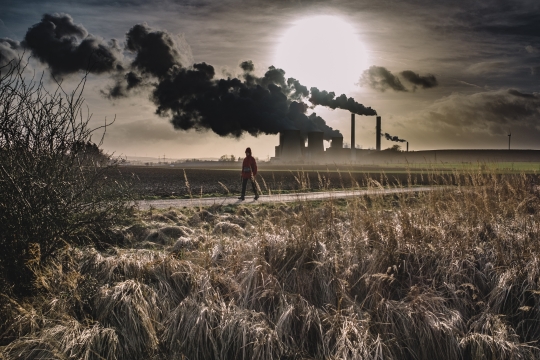Last month, I anxiously awaited the Supreme Court’s decision on President Trump’s discriminatory travel ban. I’ve spent the past year in disbelief of the way the leader of our country has spoken about the Muslim community and I continued to hold out hope that our highest court would ensure the freedom of religion and equality for all that our founders intended.
Standing in front of the steps of the Supreme Court, my heart raced with uncertainty. I didn’t want to imagine a world where a country of immigrants, with such strong roots in the freedom of religion, would allow such a discriminatory policy to be upheld. After what felt like an eternity, the news finally came that the ban was ruled constitutional. My previously racing heart now sank in disbelief, as I was forced to realize our county’s previously unimaginable fate.
As a Jew and as an American, I recognize the importance of welcoming the stranger, especially to a nation of immigrants. Exodus 23:9 reads, “You shall not oppress a stranger, for you know the feelings of the stranger, having yourselves been strangers in the land of Egypt.” Most of the Jewish community, like most Americans, would not be living in the United States if their families were unable to immigrate to this nation.
During WWII, my great-grandparents were forced to flee Germany to escape the Holocaust. My great-grandfather had received notice that he was no longer employed as an electrician, purely because he was Jewish. The store that he worked out of was later decimated on Kristallnacht- the Night of Broken Glass. After losing his job and living in fear of being attacked simply for being a Jew, he and my great-grandmother decided to flee, leaving behind their families in hopes of religious freedom. When they arrived in America, they were able to live where they wanted, work where they wanted and, most importantly, they had the freedom to practice Judaism without fear of persecution. If they were unable to immigrate to America, I would likely not be here today.
Despite President Trump’s claim that the ban is a national security measure unrelated to the religion of the affected countries’ people, his intention is clear. The President made his motivations transparent when he stated, “Donald J. Trump is calling for a total and complete shutdown of Muslims entering the United States.” To deny the opportunity to come to America to a population of people, on the basis of their religion, is hypocritical, shameful, and un-American. This policy not only denies the opportunity for countless individuals to immigrate to the United States, but it also cuts off travel between these countries and our nation, separating families.
As part of my work this summer with the National Religious Campaign Against Torture, I attended the rally, held later that day, in front of the Supreme Court. I, along with the countless other protesters, stood in solidarity with those from the Muslim community and anyone affected by the ban. The overwhelming feelings of sadness, frustration, and anger were easily felt across everyone participating in the event. Yet, these emotions were shared across a diverse crowd of leaders from all faith groups and individuals of all genders, ages, religions, races, cultures, and backgrounds.
In that moment, I realized the decisions of our government do not define who we are as a nation. Instead, the people of our country define who we are as a nation. There I stood, witnessing representatives of diverse groups come together and turn their feelings of sadness and frustration into a desire to take meaningful action. It was a desire to uphold the founding values of our country and ensure equality for all people, regardless of their religion.
Our founders intended for the power of our country to be held by the people, and despite the court allowing an incredibly discriminatory and Islamophobic policy to continue, we the people decided to stand together and fight for the freedom of religion for all. It is simply not enough to talk about the issue. Our democracy will not prevail if we do not take action.
Alexa Chronister is a 2018 Machon Kaplan participant and an intern for the National Religious Coalition Against Torture. She is a junior at the University of Delaware, majoring in public policy and minoring in social entrepreneurship. Alexa is from Reading, Pennsylvania and belongs to Temple Oheb Sholom. She is also a NFTY Pennsylvania Area Region alum and has spent the last nine summers at URJ Camp Harlam.
Machon Kaplan is an internship program for undergraduate students interested in Judaism and social justice. Based in Washington, D.C., it provides students with a meaningful social justice internship, the opportunity to engage in study related to their internships and and making change more broadly, as well as an open reflective community with whom to share their experience. Students learn, through study and action, the interrelationship of Judaism and American ideals, as well as how change happens. Learn more.
Related Posts

Learning to Appreciate the Value of Nonpartisanship Through My Summer Internship


